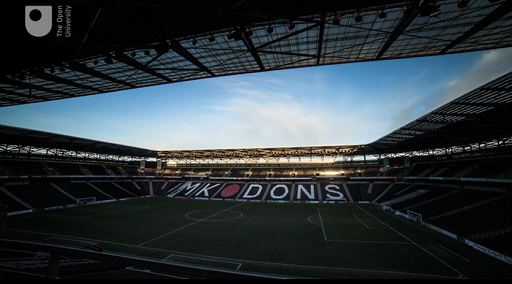1 A business like no other
We started this course saying that football was a business like no other, but what is the ‘business of football’ and how does it differ from other businesses? More fundamentally, is it a business at all?
To start to answer some of these questions you will now take a look at the business of football as it operates away from the pitch. The following video, voiced by Eleanor Oldroyd, gives you a fascinating insight into the football business by giving behind-the-scenes access to people working across the industry. As you are watching this video consider the statement outlined in the box below and ask yourself the question ‘how does football not only survive but thrive as a business?’
Ever since we first published our Annual Review of Football Finance almost thirty years ago, Championship clubs have consistently reported operating and pre-tax losses, and those losses have increased even as revenues have increased, with record operating losses reported each year since 2014/15. COVID-19 has further highlighted the financial struggles of these clubs with all-time high operating losses (£434m) and pre-tax losses (£508m) reported in 2019/20. Even without the impact of COVID-19, the structural reasons for such significant losses are clear:
- the rewards for reaching the Premier League are so high that clubs (and their owners) are willing to take substantial financial risks to secure them; and
- there is intense competition and inevitably most aspirants fail in their objective with only three clubs out of 24 achieving promotion each season.
Activity 1 Football and more ‘conventional’ businesses
As you watch the video, note down the ways in which you think that football may differ from businesses usually considered more conventional, such as supermarkets like Sainsburys or Aldi.

Transcript: The business of football
The business of football
Discussion
These are some of the differences you may have noticed between football and more conventional businesses:
- The nature of competition is different – football clubs compete with one another for customer and sponsorship income but also can’t survive without competition within their league. If you were running Sainsbury’s you would see the demise of another large supermarket chain as an opportunity – as a football club the demise of another club would be treated differently.
- Brand loyalty – football fans are probably the most loyal customer base a business can have – can you imagine feeling the same way about your local supermarket? This means that supermarkets and other businesses have to work much harder than football clubs to attract and keep their customers.
- Financial sustainability – if most clubs were conventional businesses they would go out of business – more conventional businesses such as supermarkets can’t afford to run themselves in this way.
- The emotional commitment to football that many owners have goes beyond what would be seen as a sensible financial decision in many other businesses.
- Much of the talk in the film is about money – we wonder if supermarket executives and staff were interviewed they would talk more about aspects such as products, the shopping experience and customers needs.
